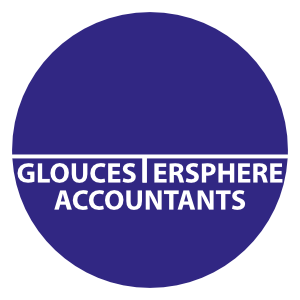If you provide a company car to an employee there will be a benefit in kind charge. This includes directors of a limited company.
What is a benefit in kind?
Benefits in Kind (BIKs) are non-cash benefits which employees receive by reason of their employment which are not included in their salary.
How is a company car benefit in kind calculated?
If an employer allows an employee to use a car that the business has bought or leased and the employee uses it privately there will be a benefit in kind charge. Private use generally includes commuting from home to a permanent place of work.
The benefit is calculated using the list price of the car plus any accessories, the vehicle’s CO2 emissions and the type of fuel that the car uses.
List price
This is the manufacturers official list price when new not the price that the business pays for the car.
You also need to add on the cost of any accessories eg leather seats, an upgraded sound system.
If the employee makes a one-off capital contribution it can be deducted from the list price (maximum deduction of £5,000).
CO2 emissions
The list price is multiplied by a percentage which is determined by the CO2 emissions of the car.
HMRC publish tables which show the relevant percentage which for 2019/20 varies from 16% to 37% (see link at the end of the blog).
From April 2020 there will be 2 different tables depending on whether the car was first registered before or after 6 April 2020 with cars registered after 6 April 2020 typically being reduced by two percentage points.
For cars under 50g/km the percentage used will depend on the electric range in miles with those cars with higher mileage under battery experiencing lower rates.
Fuel type
There is a 4% supplement for diesel cars which do not meet the Real Driving Emissions Step 2 (RDE2) standards up to a maximum of 37%.
The benefit in kind charge on electric cars has been steadily increasing since April 2015. However, from April 2020 the Government has said that this will be reduced to 0% for purely electric cars. This will increase to 1% in 2021/22 and 2% in 2022/23.
Fuel
If the business also pays for the private fuel for the individual a further benefit in kind charge will arise. This is calculated using the same percentage as for the company car. It is multiplied against a flat rate charge of £24,100 (2019/20 figure).
This generally works out as being quite expensive and can result in the employee paying more in tax than they would have done by paying for the fuel.
There is no benefit in kind for providing electricity for an electric car.
Car only provided for part of the year
If the car is only provided for part of the year the company car benefit will be pro-rated accordingly.
Example
Jessica’s employer provides her with a diesel Ford Focus on 6 April 2019. The list price of the car is £25,000 and the CO2 emissions are 110g/km.
The benefit in kind charge in 2019/20 will therefore be £7,500 per annum (£25,000 x (26% + 4%).
If the business also paid for all fuel there would be a further benefit in kind charge of £7,230 (£24,100 x (26%+4%)).
If Jessica only had the car for 6 months in the tax year the benefit in kind charge would be reduced by 50%.
How the company car benefit taxed?
Employee
The benefit in kind charge is taxed on the employee as the top slice of their employment income. If they are a basic rate tax payer they will be taxed at 20%, higher rate tax payer at 40% and additional rate taxpayer at 45%.
If the company car is correctly accounted for in their tax code (see point below) the employee should pay sufficient tax through PAYE and no further liability will be due. Any under or overpayment of tax will either be corrected after the tax year by a HMRC tax calculation or on the employee’s tax return.
Employer
The employer will pay Class 1A National Insurance Contributions at 13.8% on the benefit.
Alternatives
Providing a company car to an employee can get expensive for both the employer and the employee. So what are the alternatives?
Pool car
If the employee uses a pool car there is no benefit in kind charge. There are strict criteria which must be adhered to for a car to be classed as a pool car:
- The car must be used by more than one person and must not ordinarily be used by one person to the exclusion of others
- The car cannot be taken home overnight. The exception to this is if there is an offsite business meeting first thing the next morning and it is not practical to go into the office before the meeting.
- Any private use is merely incidental.
Very few company cars will meet this criteria particularly the second two points.
Company van
If a van is provided to an employee, a BIK charge will arise if there is private use of the vehicle. Commuting from home to work does not count as private use for a van so there might not be any BIK issues unless there is other private use.
If there is private use of the van there is a flat rate charge of £3,430 for 2019/20 and if private fuel is provided there is a further charge of £655. This is often lower than the benefit on a company car.
As with a company car, a van is taxed on the employee as employment income and the employer would pay Class 1A NIC at 13.8%.
A van can include a double cab pickup (eg Toyota Hilux) as long as it is constructed to carry a payload of over 1 tonne.
Employer provides company car but does not pay for fuel
The fuel benefit in kind charge can be quite expensive. An alternative is for the employee to pay for their own fuel. They can then make a claim for the business mileage using the HMRC company car rates which change each quarter.
Employer pays for motor costs
Instead of the employer providing the employee with a company car it could pay for the employee’s motor costs (fuel, repairs, insurance etc). This would be a BIK so tax and NIC would be due but as it would be based on the actual cost to the employer it might be more tax efficient to do this rather than providing a company car.
Employee claims for business mileage
The employee could claim for the business mileage that they do in their own car. There will be no tax or NIC implications if this is within the HMRC approved rates (45p per mile for the first 10,000 miles in a tax year and 25p per mile thereafter).
Employee could receive a car payment in their salary
This would be taxed along with their normal salary but would allow them to buy their own car. They could then claim business mileage from the business.
Is there anything else to consider?
P46(car)
When an employer provides a company car to an employee it should complete a P46(car). This notifies HMRC what the likely BIK charge is and they can then adjust the employee’s tax code accordingly. This should ensure that the employee pays sufficient tax through PAYE. You should notify HMRC of any changes to company cars each quarter.
Capital allowances
If the business owns the car it can claim capital allowances on it. This is a way of claiming tax relief on the cost of the vehicle. The company can claim tax relief at 18% per year if the CO2 emissions are between 50g/km and 110g/km or 6% per year if the CO2 emissions are over 110g/km. This tax relief might make it more beneficial to give the employee use of a company car.
The business could claim 100% tax relief on a van or a car with CO2 emissions of 50g/km or less or an electric car depending on the level of its other capital expenditure.
Conclusion
Providing an employee with a company car can be an additional perk that you can use to reward them and might be an incentive to encourage new employees to join your business.
Careful consideration should be given as to whether it is tax efficient to provide a company car or whether there is a more suitable alternative. Generally directors are better off holding the car personally unless it is a low emission or electric car.
If you provide your employee with a car make sure that they are aware of the tax implications so that they are not faced with an unexpected tax bill.
Useful links
Gov.uk – CO2 percentages
Gov.uk – Company car fuel rates
If you would like further information on whether a company car is the best option please give us a call on 01452 260960 or send us an email to [email protected].









